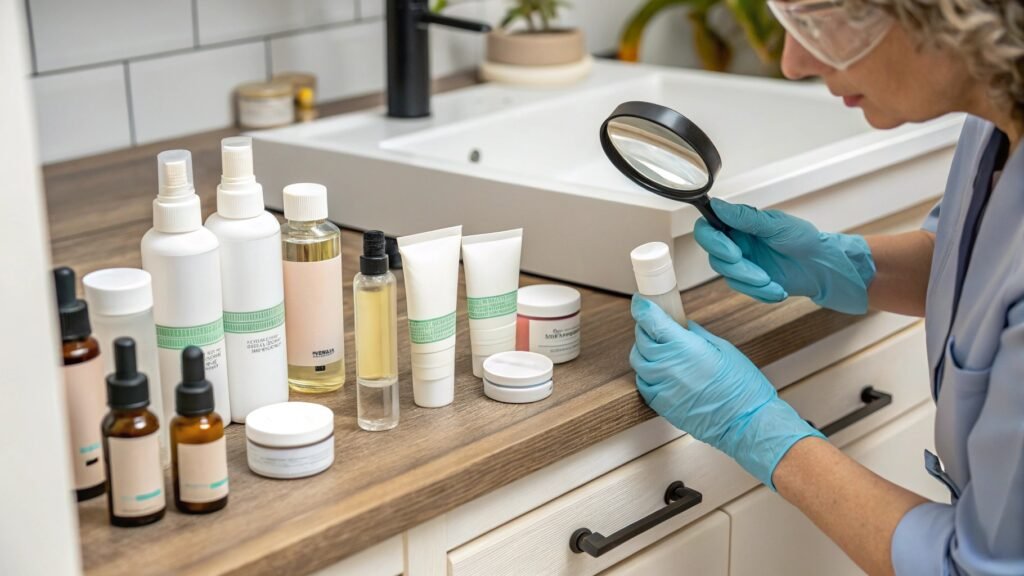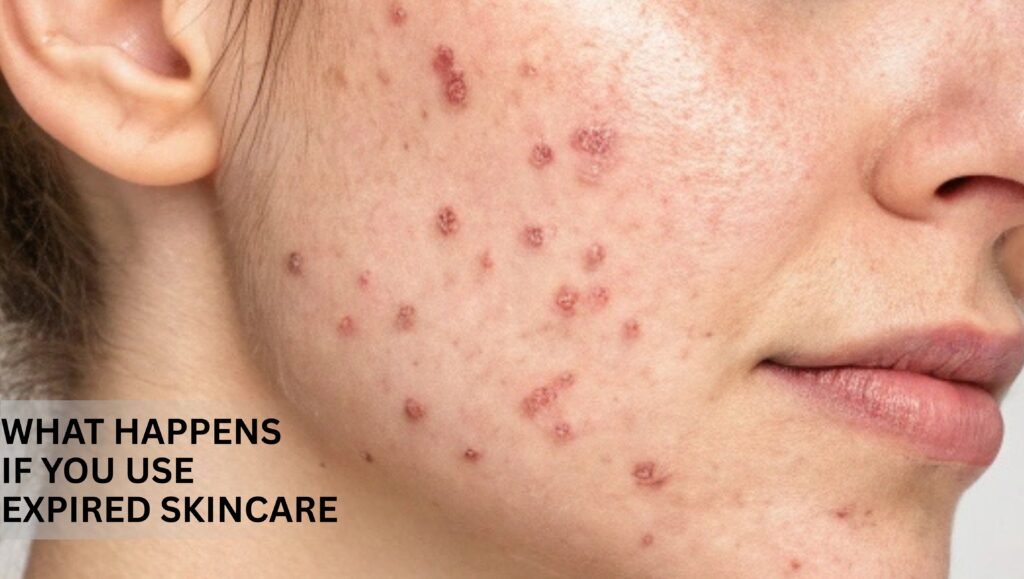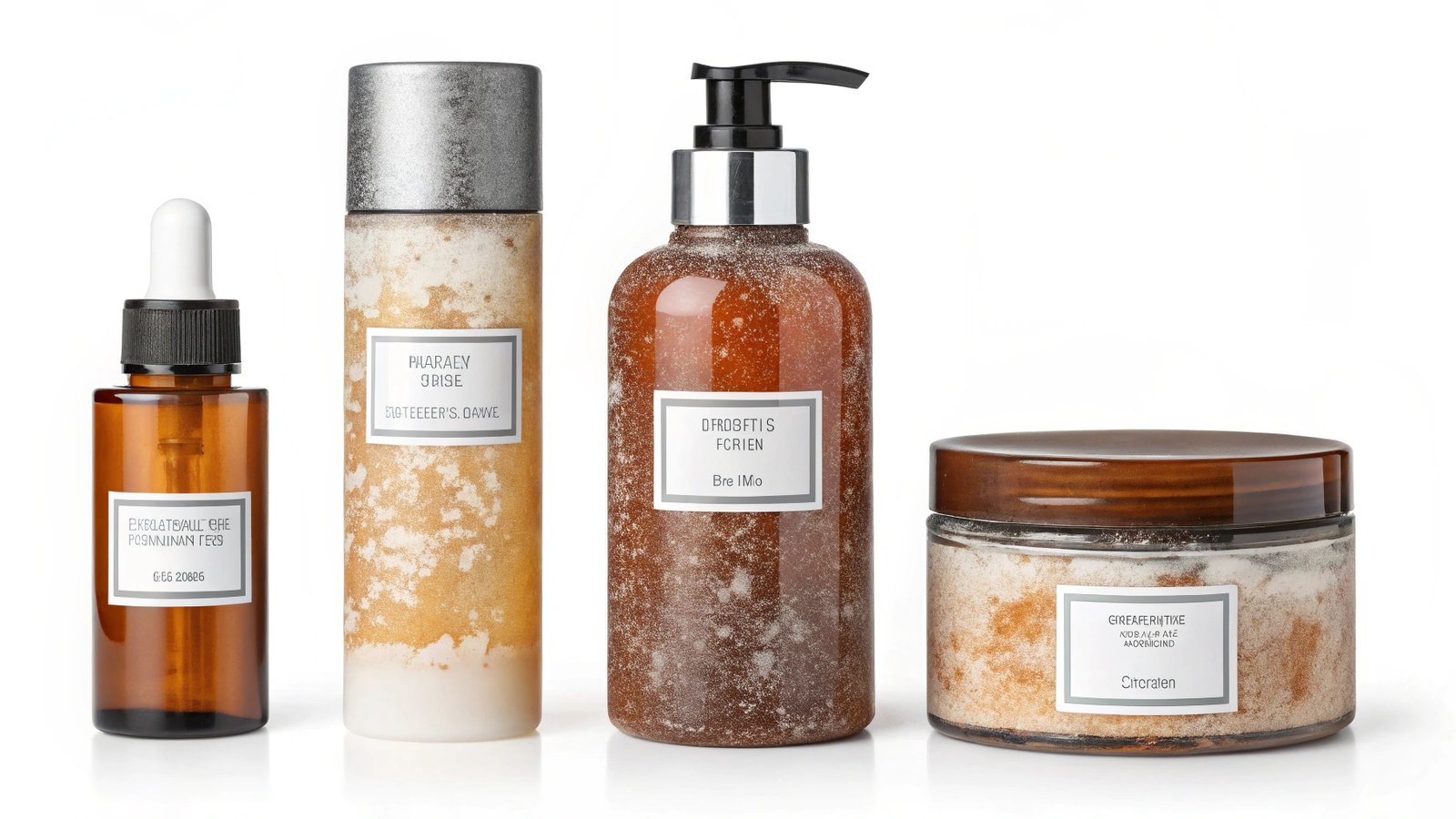Wondering if your skincare products are still safe to use? This in-depth guide answers the question “does skin care expire” by explaining how long common beauty products last, how to spot expired items, and what happens if you use them.
Learn essential storage tips, expiration signs, and expert advice to keep your skincare routine safe, effective, and glow-friendly.
In our pursuit of glowing skin, we often stock up on cleansers, toners, serums, and creams — but have you ever checked when they expire?
If you’ve been asking yourself, “Does skin care expire?”, you’re not alone. Many people are surprised to learn that their skincare products have limited shelf lives — and using them beyond that can do more harm than good.
In this comprehensive guide, you’ll discover:
- Why skincare products expire
- How to identify expired products
- The shelf life of common items
- Storage tips to extend product life
- What happens if you use expired skincare
Let’s uncover the truth about skincare expiration and how to keep your routine safe, effective, and skin-friendly.
Yes, skincare products absolutely expire. Over time, the active ingredients break down, preservatives become less effective, and the formula can lose its intended potency — or worse, become a breeding ground for bacteria.
Factors that influence skincare expiration:
- Type of formulation (oil-based vs. water-based)
- Packaging style (jar vs. pump vs. dropper)
- Presence of preservatives
- Frequency of use
- Exposure to air, light, and heat
For example, products containing vitamin C, retinol, or natural extracts tend to degrade faster due to their sensitivity to oxidation.

Skincare brands use preservatives to stabilize formulas and prevent microbial growth. But even these preservatives have a lifespan.
Once the product is opened, oxygen, bacteria, and environmental factors begin to affect the formulation. The result? Products that are:
- Less effective
- Irritating to the skin
- Potentially harmful
Here’s a breakdown of the average shelf life of common skincare products — both unopened and opened:
| Product | Unopened Shelf Life | After Opening (PAO) |
|---|---|---|
| Cleansers | 2 years | 12 months |
| Toners | 1.5 – 2 years | 12 months |
| Moisturizers | 2 years | 6–12 months |
| Serums (e.g., Vit C) | 1–1.5 years | 3–6 months |
| Retinol products | 1 year | 3–6 months |
| Sunscreen | 3 years | 6–12 months |
| Eye creams | 1–2 years | 6 months |
| Face oils | 1.5 – 2 years | 6–12 months |
| Exfoliants (AHAs/BHAs) | 1–2 years | 6–9 months |
| Natural products | Varies (often < 1 year) | 3–6 months |
PAO = Period After Opening. You’ll find this on the packaging as a tiny jar icon with a number like “12M” (meaning it should be used within 12 months of opening).
Even if you’re unsure of the date, your skincare often tells you when it’s time to toss it.
- Texture changes: Clumping, separation, or unusual thickness
- Unpleasant odor: A sour, metallic, or rancid smell
- Color changes: Darkened or yellowed serums, cloudy gels
- Visible mold or spots: Especially in jars or natural products
- Skin reactions: Burning, itching, breakouts, or redness
If any of these signs show up — it’s time to let it go.

Using expired products might seem harmless, but it can cause:
- Skin irritation or allergic reactions
- Increased acne and clogged pores
- Eye infections (especially from expired eye creams)
- Sun damage (from ineffective expired sunscreen)
- Wasted time and money due to inactive ingredients
Especially avoid using expired SPF, acids, or vitamin C serums — their chemical stability is crucial for safety and effectiveness.
Proper storage can extend product life and keep your skincare safe.
- Store in a cool, dry place — avoid bathrooms where humidity shortens shelf life
- Keep away from direct sunlight — especially for vitamin C and retinoids
- Use spatulas or pumps — reduce contamination from fingers
- Label your opening date — mark it on the bottle with a marker
- Use a skincare fridge — optional, but helpful for products like serums and eye creams
No — even unopened skincare has an expiry date. Preservatives degrade over time, especially in organic or clean beauty formulas.
Check for:
- Manufacture date (MFG)
- Expiry date (EXP)
- Or use online batch code checkers like CheckFresh to verify older products.
Don’t just toss expired products down the drain! Here’s how to dispose responsibly:
- Empty contents into a paper towel or compostable material
- Rinse containers before recycling
- Recycle packaging according to local guidelines
- Use TerraCycle or in-store programs for beauty product recycling
No. While it may not seem harmful, degraded formulas can irritate skin or cause breakouts.
After this date, the product’s formulation can change, and its safety and efficacy may be compromised
Check your product’s PAO (Period After Opening) symbol
The number indicates the number of months before you should toss out the product—so, for example, “24M” means 2 years after you first open the product.
Yes. These often lack synthetic preservatives, so their shelf life is typically shorter (3–6 months).
Somewhat. Store them properly, avoid contamination, and always reseal tightly.
So, to answer the big question — does skin care expire?
Absolutely. And knowing how to track expiration, identify spoiled products, and store them properly can protect your skin, save money, and maximize effectiveness.
skincare expiration dates
shelf life of beauty products
expired moisturizer
expired sunscreen danger
skincare storage tips
product expiration signs
period after opening
does serum expire
is expired skincare harmful
Keeping your skincare fresh is more than organization it’s part of your skin health.
Pro tip: Check your skincare shelf right now — your skin might thank you later!
What Is Essence in Skin Care? Unlock the Secret to Radiant, Hydrated Skin
Lotion or Body Oil First? The Right Way to Layer for Smooth, Hydrated Skin
Best Hydrating Serum in 2025: The Ultimate Guide to Deeply Moisturised, Glowing, Plump Skin
